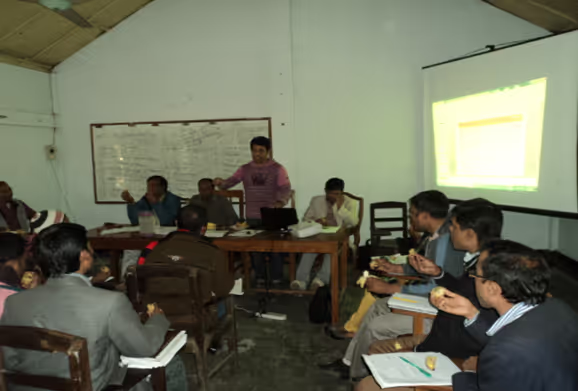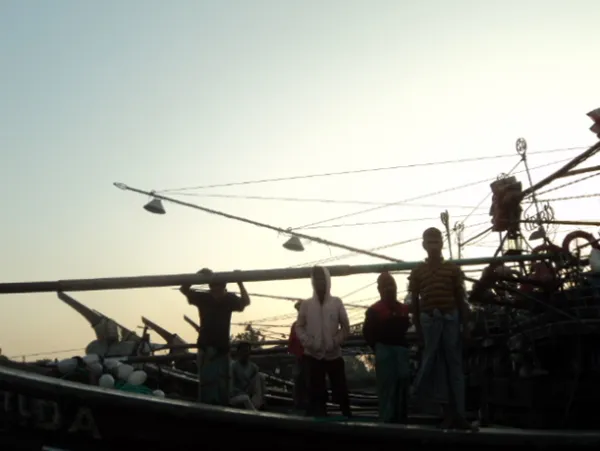Fishermen go digital!!

In January 2013, the CARE project team continued to hold project inception workshops with local stakeholders such as the SHOUHARDO II partner NGO (SHED). During the workshop CARE introduced the project’s objectives, outputs, and activities, as well as asked for feedback and advice from participants. All participants agreed that a digital early warning system (EWS) for fishermen is much needed. One of the participants, Mr Selim, a small time fisherman of his boat shared his experience: “Frequency and intensity of depressions and storms has been increased in the sea. Number of early warning signals was higher in last year. I faced pirate attacks three times so far. I had to surrender all the fish I caught, money and everything. I was helpless at that moment because eight members of my family only depended on my earning”.
To prevent this, the EWS will notify fishermen 48 hours ahead of rough sea events through a digital device that will be installed on fishing vessels. And, the device will track fishing vessels to allow for more efficient and precise rescue missions, even from the pirate attacks into the deep sea.

Furthermore, the CARE project team conducted a capacity and vulnerability assessment. The assessment confirmed that a large number of households depend on fishing for an income. Many families have already lost husbands, sons and brothers to cyclones or other rough weather while at sea. For example, a violent storm swept across the south and south-eastern coastal districts of Bangladesh leaving on October 10, 2012 killing at least 21 people (of which 2 died in Cox’s Bazar) and hundreds of fishermen are still missing. This project’s EWS will help to warn fishermen early to allow them to return to shore safely – and will also help to detect the ships’ location.
Finally, the CARE project team held a partners coordination meeting with CGC, CSRL, AirTel and SSD-Tech at CBHQ, Dhaka. The meeting emphasized on project target e.g. 300 boat and available infrastructure, procurement of necessary logistics, partners' role in functioning the project, inception meeting at district level, meeting with relevant ministry, department and others local level stakeholders. A Detailed Implementation Plan (DIP) for the next 6 months has also been prepared in order to run the project activities smoothly.
Stay updated
Sign up for our newsletter to receive regular updates on resources, news, and insights like this. Don’t miss out on important information that can help you stay informed and engaged.
Related articles


.png)
Explore Elrha
Learn more about our mission, the organisations we support, and the resources we provide to drive research and innovation in humanitarian response.